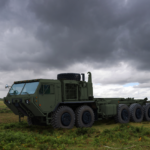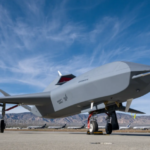As part of its risk-based screening efforts, the Transportation Security Administration (TSA) this year plans to further expand its use of trusted traveler programs, including deploying its PreCheck program to more airports while reaching out in new ways to include more participants, the head of the agency said recently. Last year TSA completed the roll-out of its expedited passenger screening program it calls PreCheck to 35 airports in the United States that handle the largest amount of travelers and plans…
Recommended

Redwire Emphasizes Defense Pivot And Maturing Capabilities In 2025 Results

Army To Pick Autonomy Provider For PLS Trucks This Summer, Fielding Prototypes In Early FY ‘28
Trending
Congress Updates
Wicker Wants Legislation On DoD’s Equity Investments In Minerals Supply Chain
Legislation regarding equity investments by the Defense Department in critical mineral supply chains is needed to strengthen the larger defense industrial base and demonstrate to the “free market” that the […]
“Not Sure How They Get To Where They Wanna Be,” Calvert Says of $1.5 Trillion Defense Topline Proposal
As the federal government enters a third week of tardiness in a fiscal 2027 budget release, a big question is how the Pentagon will be able to spend $500 billion […]
Path Uncertain For $1.5 Trillion FY ‘27 Defense Topline After Trump Casts Doubt On Second Reconciliation Bill
The path to achieve the White House’s call for a $1.5 trillion defense topline in 2027 appears murkier now after President Donald Trump has cast doubt on the prospects of […]
Senate Budget Dems Push For Defense Reconciliation Spending Details, Cite ‘Slush Fund’ Concerns
Democrats on the Senate Budget Committee have raised “significant concern” with the Pentagon’s move to classify reconciliation spending plans, urging the department to provide more public details on how the […]
Job Feed
-
Cleared R&D Manager
Inertial Systems, Onsite - Sandia National Laboratories - Albuquerque, NM -
Cleared Early Career Operations Information Management Professional
Special Programs, Onsite - Sandia National Laboratories - Livermore, CA -
Police Sergeant
Saddleback College - Mission Viejo - Saddleback College - Mission Viejo, CA -
Supervisory Power and Operations Planning Specialist / Meteorologist / Operations Research Analyst
USA Jobs - Portland, OR










